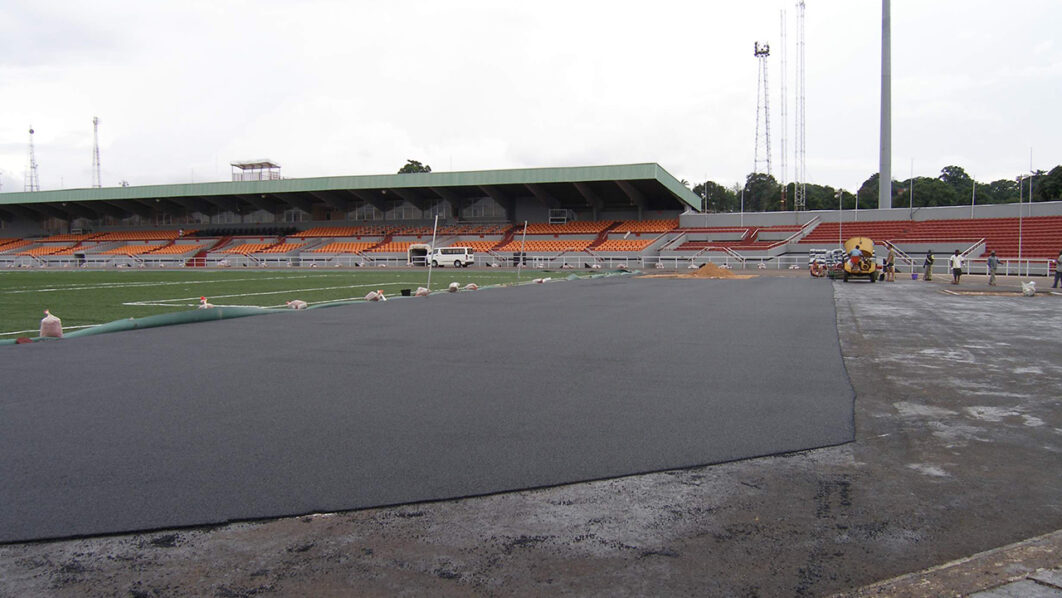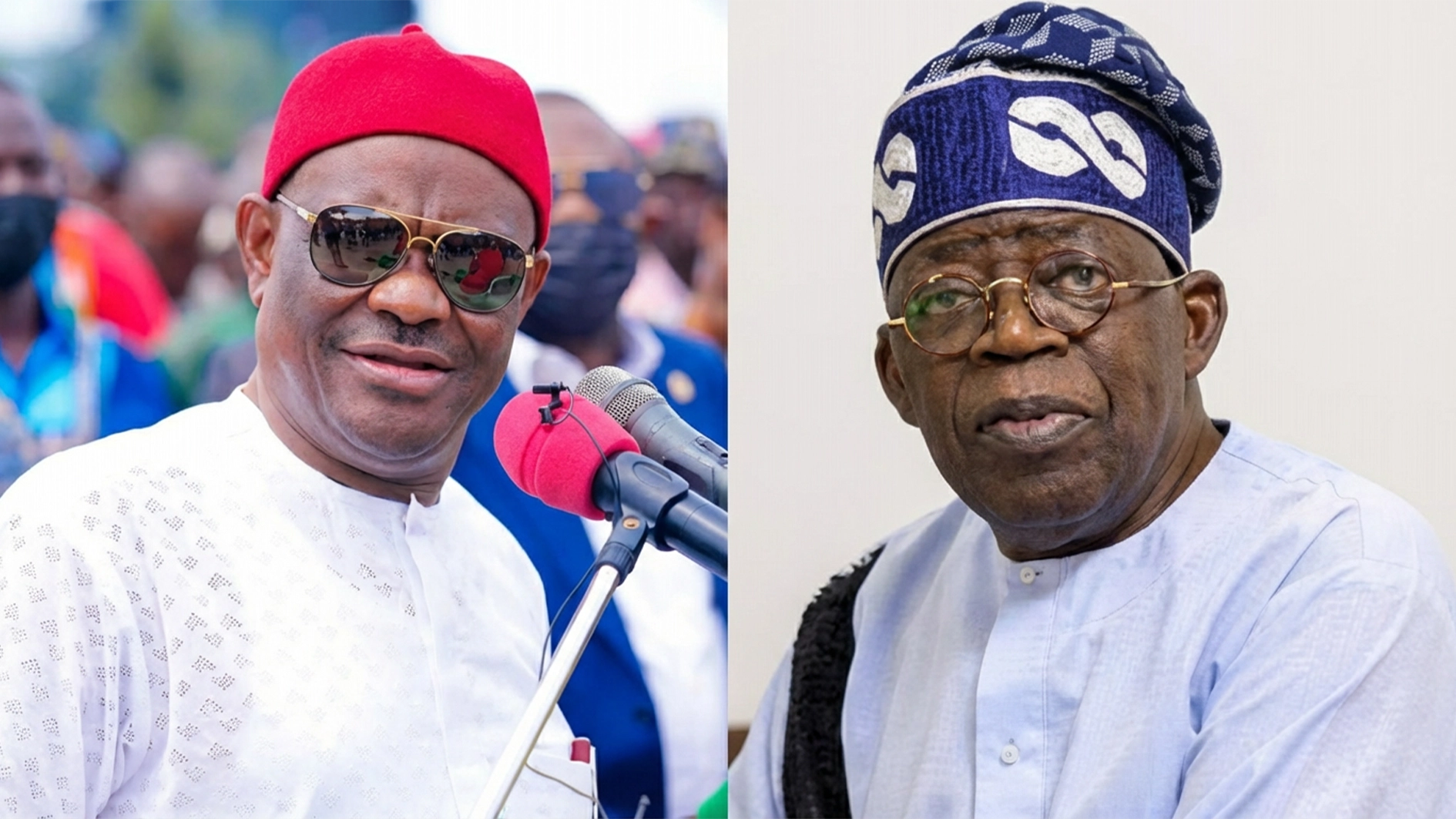
South East economy is in tatters owing to the obnoxious sit-at-home decreed by outlaws that are operating freely in the region. Now, football clubs from the zone are battling the odds as key international games involving them have to be taken elsewhere due to decrepit and substandard facilities that dot the zone. CHRISTIAN OKPARA writes that the problem of poor facilities could be laid to rest if proper diligence is done in constructing or refurbishing facilities.
The old Nnamdi Azikiwe Stadium, Enugu, was the theatre for so many battles involving one of Nigeria’s biggest teams, Rangers International, and some of Africa’s most renowned clubs from the 1970s up to the late 1980s. But one of the games that is etched prominently in Igbo folklore is the 1977 African Cup Winners Cup game between the Flying Antelopes and Mehalla of Egypt.
That was a game that attracted many Igbo football followers from all over the defunct East Central State to the stadium, which was then the biggest sporting arena in the whole of the region.
The game, known as the “Mehalla War,” cemented the Rangers’ position as the dream team of every Igbo man, who saw in the club a symbol of the tribe’s power and resilience after the devastating three-year Nigerian Civil War.
In the old East Central State, the Nnamdi Azikiwe Stadium, and the University of Nigeria, Enugu Campus (UNEC) arena were the two centres of football excellence, which hosted many memorable encounters involving Rangers and the defunct Vasco Da Gama.
The Nnamdi Azikiwe Stadium was rebuilt in the 1990s, and the early 2000s by the Federal Government on time for such international competitions as the FIFA U-20 World Cup, and its U-17 equivalent, which the country hosted in 1999 and 2007 respectively.
Sadly, the reverred arena, which was reconstructed by the Enugu State government just barely two years ago, has deteriorated to the point that the Confederation of African Football (CAF) blacklisted it from hosting international matches. The reason is that it is not up to the standard required to host FIFA-approved games.
The Enyimba Stadium is in the same boat as the more renowned Enugu Stadium. The arena gained global attention when it hosted Enyimba’s march to CAF Champions League back-to-back victories in 2003, and 2004.
The feat made the Peoples Elephant Nigeria’s most successful club in history, with the monetary rewards making it the richest side in the country.
Sadly, since the arena was banned by CAF from hosting international games, it has been reduced to staging only local league games and sundry encounters because the facilities do not meet the required standard for big games.
Enyimba Stadium’s case, like that of the Nnamdi Azikiwe, is confounding because the immediate past Abia State administration under Dr Okezie Ikpeazu, renovated the arena with over N800 million shortly before he vacated office in 2023.
However according to CAF, the stadium falls short of what is required of a facility billed to host a competition as big as the CAF Confederation Cup.
The result is that Enyimba, which is the only Nigerian club left in any CAF inter-club competition following the ousters of Rangers, Remo Stars, and El Kanemi Warriors, play their home games in the Confederation Cup in Uyo, Akwa Ibom State.
For two years, the Dan Anyiam Stadium, which hosted Iwuanyanwu Nationale’s (now Heartland) exploits in the CAF Champions League in the mid-1980s and early 2000s, was banned from hosting local league games due to the bad state of the facilities.
The current administration late last year spent over N500 million to refurbish the arena and make it suitable for, at least, Heartland FC’s Nigerian Premier Football League (NPFL) games. This has seen Heartland returning to the arena for their home games in the NPFL, but when Enyimba needed an alternate venue for their CAF Confederation Cup games, the facilities were found grossly unsuitable for continental matches.
The South East has produced some of the biggest talents in Nigeria’s sports history. The country’s first qualification for the FIFA World Cup in 1994 was made possible by a team, which had 60 per cent of the players coming from the South East. The women’s football team, Super Falcons, which has been the dominant side in Africa’s female football, is dominated by southeasterners, just as almost all the women’s football teams in the country have at least 20 per cent of players from the region.
However, the region does not have the facilities to enhance these athletes’ performance internationally. Even at the National Sports Festival dominated by such states as Delta, Edo, Lagos, and Ogun States, a sizable number of South East indigenes top these states’ contingents.
What this means is that why the region does not have the facilities to unearth and nurture its talents, the athletes find their way to other states where they are appreciated and given the necessary platforms to grow.
Explaining CAF’s decision to reject South East facilities during their inspection of stadiums, the manager, of stadium facilities at the Nigeria Football Federation (NFF), Nasir Jubril, said that managers of these facilities do not comply with CAF’s specifications when they are building, or refurbishing their stadiums.
He said that Enugu Rangers were stopped from using the Nnamdi Azikiwe Stadium because the arena doesn’t have standard facilities. He said: “The Nnamdi Azikiwe Stadium pitch is not good, the dressing rooms are not up to CAF Category 2 and 3 standards, the media tribune, where journalists work and send stories to their offices and the media stands are not up to standard, and they don’t have reserve benches.
“What they are using as reserve benches are not even close to what we can approve. There are specifications on what a reserve bench should contain. You cannot just build a stand and call it a reserve bench.
“Enyimba Stadium has the same problems as the Nnamdi Azikiwe Stadium, but it has an additional issue of the distance of the dressing rooms to the pitch. It is too close. Once you come out from the dressing rooms you are already on the pitch.
“They said their pitch is hybrid, but it is not up to CAF standards. To use the pitch, you need to bring some experts from either FIFA or CAF to inspect it, but none of them have done that.”
Worried by Jubril’s classification of stadiums in the South East, former Heartland FC Secretary, Cajetan Nkwopara, said that some of the governors in the region don’t know the importance of sports to the development of their states.
“They are busy chasing other things when youths from their states don’t have avenues to develop their talents,” he said.
According to Nkwopara, efforts have been made in the past to refurbish some of the existing facilities, but some of these efforts fall short because the jobs are given to politicians, who do not know what standard arenas require to be certified fit for international competitions.
He continued: “When we were in charge of Heartland, there were plans to rebuild the playing surface with what some people sold to the then governor, Rochas Okorocha as the latest in pitch technology. It was an artificial surface in disguise, but the players rejected the plan because it was not good; affected their knees, and even on retirement, the effects of playing on such pitches dog their health. It also causes cancer and FIFA and CAF don’t allow their matches to be played on such fields. Unfortunately, the government did not complete the job of building a standard stadium until Rochas left office.
“I know that the stadium was refurbished last year, but I don’t know if they used the real materials for it or the garden carpets that some agents sell to Nigeria as artificial turf.”
Expressing regret that the Nnamdi Azikiwe Stadium did not meet the standard required by CAF, the Enugu State Commissioner for Sports, Lloyds Ekweremadu Jr., said that the Enugu State government has assessed the facility and has begun moves to bring it up to standard.
“The state government has approved the resuscitation of all the areas pointed out by CAF and soon the place will be good enough for all calibre of games,” he said.
The Abia State’s Commissioner for Sports, Obilor Nwananaba, said that building an international standard stadium is paramount on Governor Alex Otti’s agenda, adding that in the next two months, the plans for an Olympic-standard stadium would be unveiled to the public.He said: “We have concluded plans for the stadium, but I cannot now tell you the site of the facility because we have two places in mind.
“Because of the place of sports development in Governor Otti’s administration, we have taken cognisance of everything required to build a quality structure, and I am sure that when the facility is ready, the country will no longer worry over where to host big competitions.”
Also speaking on the poor standard of facilities in the South East, the Secretary of Imo State Players Association, Kennedy Onwunali, said that the state government is working on the Dan Anyiam Stadium to bring it up to the required standard.
He said: “Coach Emmanuel Amuneke embarked on the maintenance of the Dan Anyiam Stadium’s pitch on his appointment as the technical manager of the team by the government of Hope Uzodinma, last August.
“With work ongoing at the television stand across the stadium, the facility, which has one of the best floodlights in the country, will be expected to host
night matches in line with the state’s agenda of becoming a tourism and sports destination in the country.
“But there are still issues with the dressing rooms and some other facilities, which the government is working on.”A stakeholder in Ebonyi State sports, Elder Akuma Mba, said that sports development went to sleep in the state after its first democratically-elected Governor, Dr. Sam Egwu, served out his constitutional maximum two terms in office.
“Elder statesman, Martins Elechi, who took over from Egwu paid scant attention to youth development, especially sporting activities.
“It was during Elechi’s administration that both our male and female football clubs were disbanded. To cap the stultification of sports development, work on the Abakaliki Township Stadium, which became Pa Ongele Oruta Township Stadium remained ongoing until Governor Dave Umahi came on board.
“Interestingly, Umahi, whose construction company was charged with the rehabilitation of Pa Ngele Oruta Stadium before he became the governor, fiddled with the idea of constructing another stadium, which he said would be of Olympic stadium. But, Umahi’s Olympic Stadium could not take shape until his tenure as governor elapsed.”
He added that recently, the former Speaker of the Ebonyi State House of Assembly, Ogbonnia Francis Nwifuru, who took over from Umahi on May 29, 2023, invited construction giant, Julius Berger, to explore how to begin work on the Olympic Stadium.
“But, we gathered that after looking at the developments so far at the site of the Olympic Stadium, the technical head of the company informed Governor Nwifuru that the project was lacking in design specifications. The company therefore told the governor that the only thing that could be done to revive the Olympic Stadium is to start from scratch, stressing that a survey and project design of the stadium should be undertaken before any talk about quotation.”
However, speaking to The Guardian on the issue of developing a qualitative sports pitch, the state Commissioner for Youths and Sports, Richard Idike, said that the state has started construction work on the project.
He explained that the facility expected to gulp about N80 billion, in Abakiliki, would have the capacity to host any event on completion. He added: “It is a gradual process because of the enormous cost involved. So, I cannot tell you now when it will be ready. We provide the money when the fund is available, but I can tell you that it is a project dear to the governor’s heart.”






